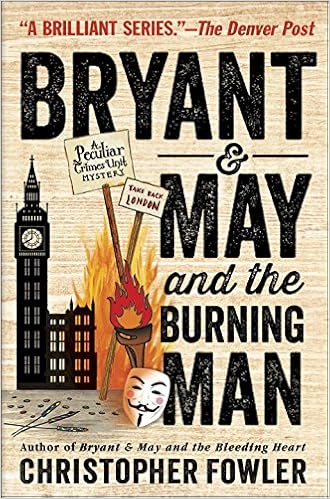The Peculiar Crimes Unit’s decrepit offices are located in the City of London, that ancient square mile that was home to London’s original settlement and is now jammed full of the skyscrapers housing the metropolis’s financial institutions.
Hardly anybody lives in the square mile anymore, which makes the P in PCU seem like it should stand for Precarious at times. The PCU has very little in the way of modern technology; nothing like the kind of assets that would allow it to combat the financial crimes that are headquartered in the square mile.
But as this twelfth book in the series begins, a case arises that is right up the PCU’s alley. Financial shenanigans in the banking world have led to increasingly large and violent protests in the City. One bank is firebombed, killing a homeless man dossed down under cardboard boxes in its entryway.
 |
| credit: www.christopherfowler.co.uk.com |
As always, the PCU gets no support––or even respect––from other police units. This time, their particular nemesis is Darren “Missing” Link, who hamstrings them, ostensibly to prevent their interference with an ongoing fraud investigation. Like everybody else, all Link sees in the PCU is a ragtag bunch of misfits, led by the spectacularly untidy and decidedly eccentric old man, Bryant. Like the rest of the force, he just doesn’t understand that Bryant’s encyclopedic knowledge of the history of London is what will make all the difference in the investigation.
Each member of the PCU faces a crossroads in this book, which gives it a bittersweet, even elegiac feel. After 12 books, the PCU members are like old friends. I hope to see them again, but if not, I wish them well and thank Christopher Fowler for letting us know them.
 |
| credit: www.christopher.co.uk.com |

No comments:
Post a Comment